Are tea bags bad for you? Paper tea bags may be hazardous due to a chemical known as epichlorohydrin. Epichlorohydrin is a possible carcinogenic and reproductive toxin that leaches after exposure to hot water.
Actually, according to this article, plastic teabags could behavioral and developmental problems
Tea is widely considered good for your health, particularly when compared to other beverages such as coffee. Tea bags are also practical, no-mess choices for brewing tea that make the process quicker and easier. However, there is a lot of debate over tea bags and their health benefits. So, are tea bags bad for you? Should you stop drinking tea bags altogether? Many renowned tea firms in the United States and Europe abuse “organic tea” by selling teabags containing pesticides, toxins, and artificial flavorings instead.
In this post, we unpack everything you need to know about tea bags and how you can make the most out of them.
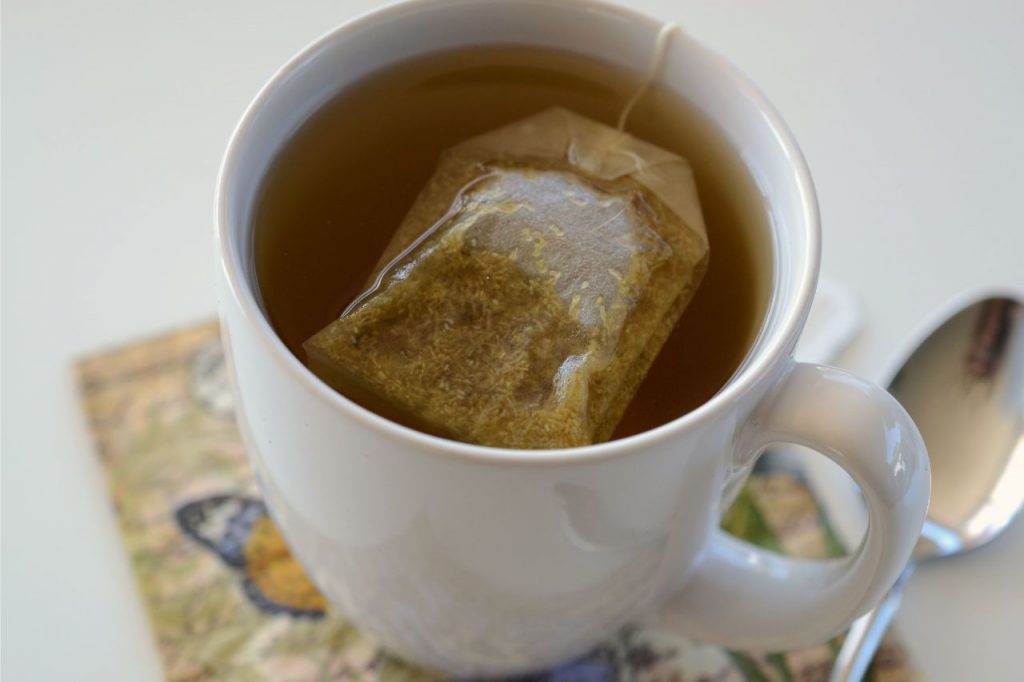
What Are Tea Bags?
Tea bags (or “teabags”) are compact, porous pouches containing leaves, herbs, and flowers. Infusing tea bags with boiling water results in a cup of tea. This process is generally done in a cup or a pot.
The most common form of tea bags are square or rectangular. In recent years, however, several businesses released more designs and shapes including round and pyramid.
Tea bags generally come with a string for easier brewing. The string usually has a small paper tag attached to the end that bears its manufacturer’s name.
Tea bags serve two primary purposes — convenience and taste. They make it simple for tea lovers to rapidly brew a cup of tea since each pouch contains the right amount of tea leaves. It, therefore, eliminates the need to brew a large pot.
Although let’s not get into the loose tea vs te bag subject here, we’ll leave that for another day haha.
What Are Tea Bags Made Of?
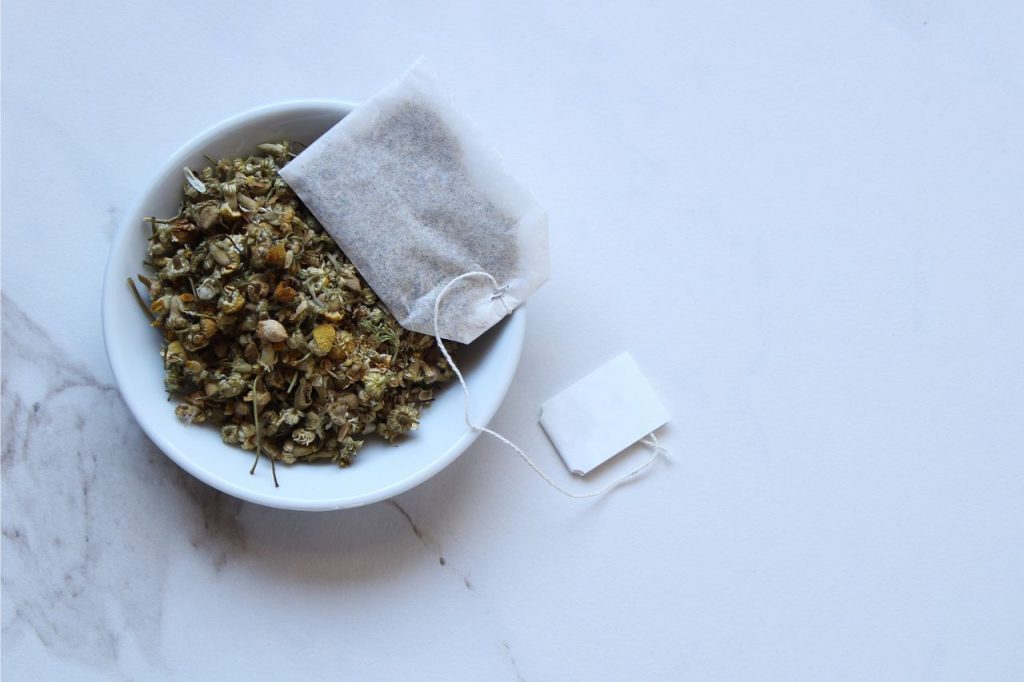
Filter paper, cotton muslin, and food-grade plastics are the most popular materials used to manufacture tea bags.
Staples and glue are used to seal them. Typically, a cotton thread and a printed tag are attached to the bag. Later on, we’ll dissect the toxins that these materials can contain.
Benefits Of Tea Bags
But, first, let’s talk about the benefits of tea bags. Why should you be using them?
Convenience
The primary selling point for tea bags is their speed and portability. You can add a tea bag to boiling water or a mug and you’re good to go. There’s no messing around with complex tea equipment either. Additionally, you don’t need to wash any more dishes. You can bring the tea bag to work or on a trip. All you need is water.
Less Mess
If you’ve ever used an infuser before, you know how time-consuming and messy it can be. Teabags offer the advantage of being mess-free.
You don’t have to worry about making a mess in the kitchen, just pull it out (watch the drips) and put it in your bin. But don’t forget to dunk it a few times first, or even squeeze the bag to get the flavor out, ok I am particular.
Good For Iced Tea
Making iced tea is really easy when using tea bags. Brewing iced tea can be time-consuming task, mainly if you include fruit etc etc. You get less preparation time with tea bags. All you have to do is open up the sachet, dump the tea bag into the water, and leave it to steep for a few hours. This method is excellent for people on the go or when you have guests over.
Cons Of Using Tea Bags
Now, let’s head onto the cons. Why shouldn’t you consume tea bags?
Less Healthy Compounds
Tea bags contain crushed leaves, fannings, and dust, unlike loose leaf teas. Manufacturers usually make them using the CTC (crust-tear-curl method). They feed the leaves into a machine where giant rollers break them into tiny pieces.
As a result, the beneficial components of tea (antioxidants and l-theanine) dissolve and are not as potent as they initially were.
You Don’t Get To Maximize The Flavor
Tea in tea bags is very small, resulting in a restriction of the tea leaves. However, like those in tea bags, constrained leaves cannot wholly release flavors. Consequently, your tea may be missing the full-bodied taste of steeping loose leaf blends.
Sources Of Toxins In Tea
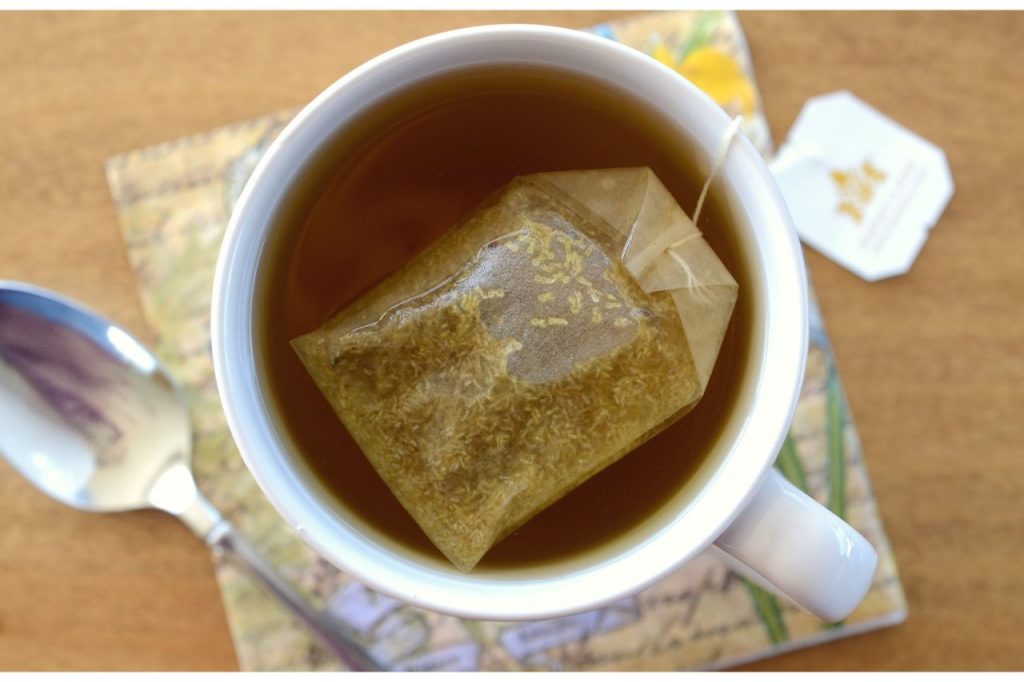
There are a plethora of debates about tea bags. A lot of research shows that tea bags contain harmful chemicals.
According to a study conducted by McGill University, a single plastic tea bag may emit 11.6 billion microplastic particles and more than billions of nano plastic fragments into the water.
Other teabag materials also contain compounds that are not good for the body. Let’s break down all the sources of toxins that you can find in tea:
- Paper: Manufacturers mostly use paper for tea bags. However, paper contains epichlorohydrin, a chemical to prevent tea bag breakage. Epichlorohydrin is a possible carcinogen and reproductive hazard when exposed to hot water.
- Silk Tea Bag Material: Most frequently, factories make these tea bags with polyethylene terephthalate or PET. This substance can leach into your tea and offer long-term health hazards.
- Polylactic Tea Bags: Polylactic acid does not have backed safety tests. It is also considered plastic.
- Toxins In Tea Leaves: Toxins in the tea themselves are also a concern, with studies indicating dangerous pesticide concentrations in tea shipped from China. Organic and conventional teas may include heavy metals from polluted soil, such as lead, metal, arsenic, and cadmium.
How To Avoid Toxins In Tea Bags
If you’re concerned about consuming these toxins, you don’t have to stop drinking tea altogether. The best way to go about this is to purchase tea brands that are open and honest about the ingredients in their teabags.
Check the box for the contents list to discover whether the tea bags you choose include any undesirable additions.
Toxin-Free Tea Bag Brands
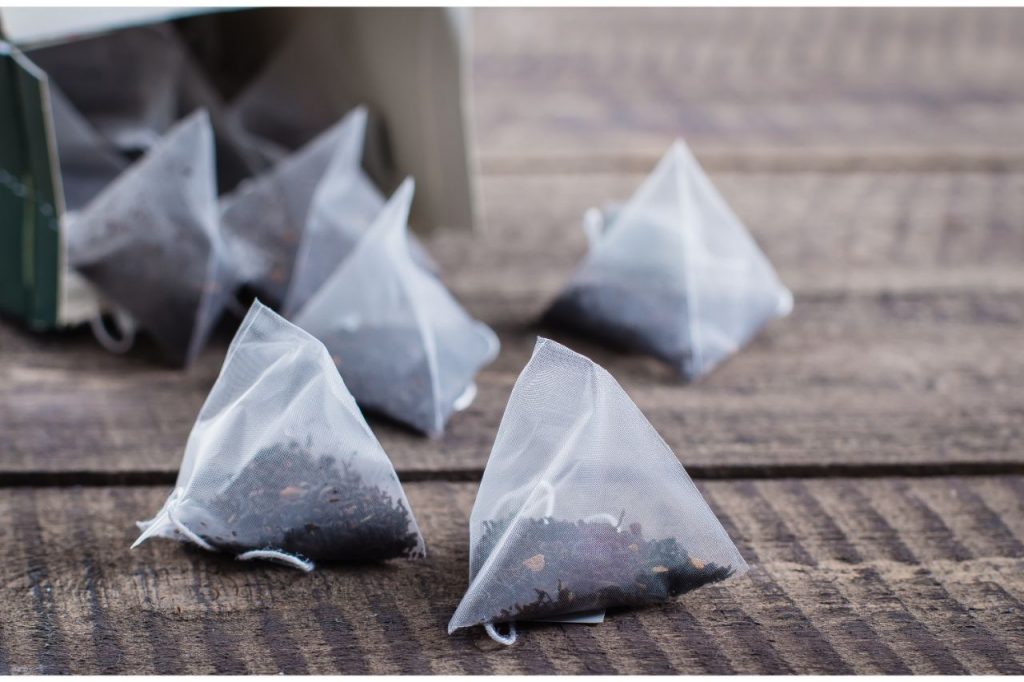
Here are some toxin-free and organic brands to help you out on your next grocery run:
Art of Tea
Art of Tea is a USDA-certified brand. They use organic ingredients to make a wide range of flavors and blends.
The company manufactures its tea bags with abaca pulp, cellulose, and sealing fiber. Their bags are not bleached, don’t contain chlorine, and will break down over time.
Furthermore, their tea bags contain no microplastics and can break down naturally. Lastly, they come in boxes made of 100% recycled paper. From the tea bags to the box — everything is organic.
Choice Organics
The company Choice Organics makes tea in a LEED-certified facility with organic and non-GMO ingredients. They make teabags with natural fibers and don’t encapsulate any plastic. Their tea bags are also compostable.
What’s more, they manufacture their boxes from 100% recyclable materials. Choice Organics is a Certified B Corporation and a part of the Ethical Tea Partnership.
Lastly, their decaffeination process is natural and doesn’t use any dangerous chemicals. If only more companies followed their footsteps.
Equal Exchange
The brand Equal Exchange works with co-ops and family farms. The brand empowers farmers, encourages entrepreneurs, and makes communities stronger.
This brand also helps small farmers in India, Sri Lanka, and South Africa by selling fair-trade coffee, chocolate, and tea.
They have a variety of teas, from black tea and green tea to peppermint, all they produce with organic ingredients and are USDA-certified.
Tea Drops
WOC-owned Tea Drops is an FDA-certified, USDA-approved, and vegan company that produces tea drops.
They uniquely produce their tea drops using natural, ground teas and compressing them into interesting shapes.
Unlike instant tea, Tea Drops aren’t freeze-dried or derived from processed leaves. Instead, they utilize natural teas.
Earth Mama
Teabags from Earth Mama are entirely certified by the USDA. Their paper tea bags are free from any toxin-processing procedures.
Tips For Brewing A Healthy Cup Of Tea
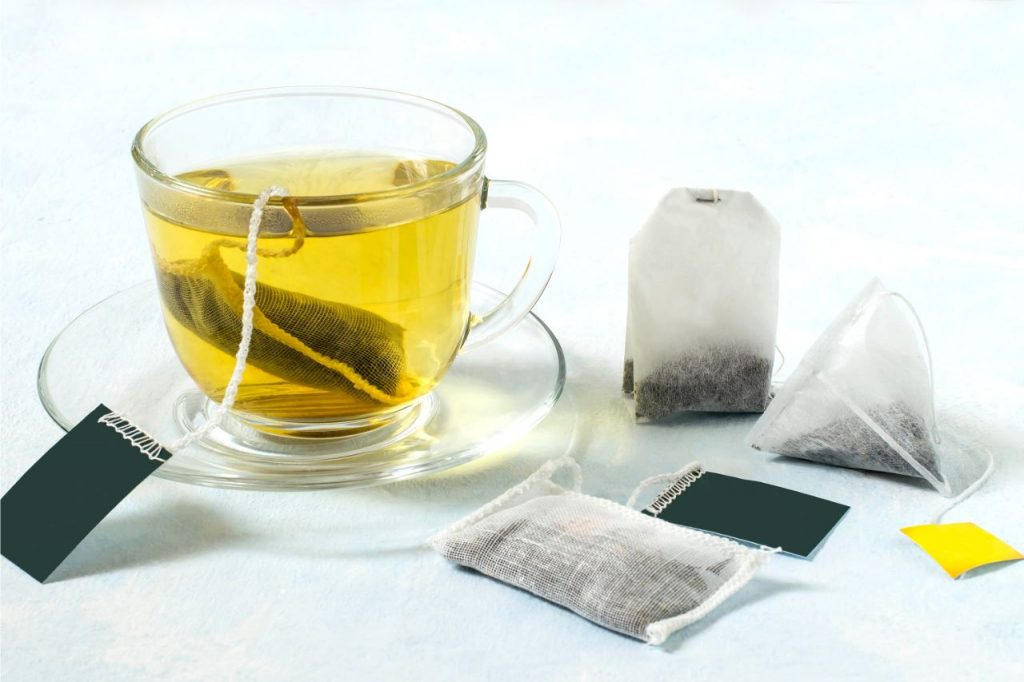
These additional tea-brewing techniques can help you make a healthier cup:
- Avoid decaf teas. Caffeine may still be present in the final product.
- If you’re trying to lose weight, avoid laxative teas since they might cause miscarriages or irreversible damage to the intestines.
- You should always seek out toxic-free tea bags while purchasing.
- Adding cream, milk, or sugar can lower the polyphenol levels, but on the other hand, not such a healthy idea.
The Verdict – Are Te Bags Bad For You?
While most of us don’t think twice about our daily cup of tea, the tea bags we use might be damaging our health and the environment.
Should you stop drinking tea from tea bags, given these harmful effects? Of course not!
Check the ingredients in your tea bags before sipping. Tea should be as beneficial to our health as we all perceive it to be, if not more so.
Enjoy your cuppa!
